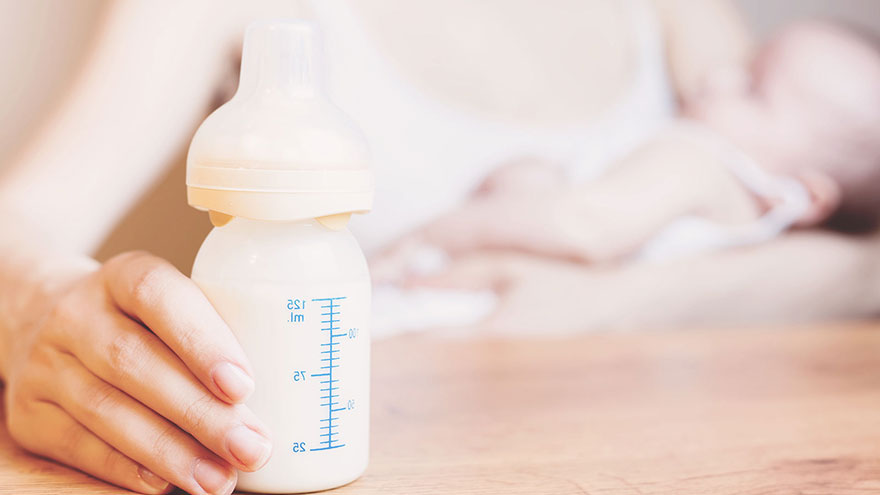The Pros & Cons of Feeding Newborns Breast Milk and Formula
One of the most fundamental decisions a new mom has to make is how to feed her baby. There’s no question that breast milk provides the best nutrition for your newborn; it’s designed specifically for him.
But breastfeeding might not be the right choice for you.
Both breastfeeding and bottle-feeding have pros and cons. It never hurts to give breastfeeding a try; even a few days of breast milk benefits your baby and you might love it.
But choosing to bottle-feed doesn’t mean you’ve let your baby down.

Cost
When it comes to cost, the benefits of breastfeeding far outweigh the benefits of formula. Breast milk costs nothing; formula will run you around $1,700 in the first year of life.
Since you need a few containers to hold formula, factor in the cost of bottles. If you breastfeed, you might have to buy a pump if you plan on going back to work, which can cost as much as $380 for an electric model, although you can rent one for around $55 per month, according to Consumer Reports.
And you might want a few nursing bras or gowns and possibly a nursing pillow. But overall, breastfeeding clearly has the advantage if you’re on a tight budget.
Ease and Convenience
From the standpoint of how much gear you have to lug around, you can’t beat the convenience of breastfeeding. Wherever you go, breast milk goes too. But if you’re a modest type, bottle-feeding also have its pluses.
You can bottle-feed anywhere without embarrassment; you might not feel comfortable breastfeeding in public. Bottle-feeding is also easier than breastfeeding, which, though natural, doesn’t always come easily to new moms.
Pouring formula into a bottle takes no practice or time to master. A bottle-fed baby might also eat less frequently, since formula digests more slowly than breast milk. And dad and other family members can feed the baby a bottle, so you’re not the only food source in the house.
Baby Benefits
Breastfeeding has clear benefits for your baby. While formula makers try to imitate breast milk, they can’t match what nature provides. Breast-fed babies receive antibodies in the breast milk which reduces their risk of respiratory and gastrointestinal infections.
Breastfeeding also reduces your baby’s risk of developing allergies or asthma and lowers the risk of obesity and sudden infant death syndrome.
Breast milk also supplies fats that aid in brain development and, because it’s more digestible than formula, causes fewer episodes of diarrhea or constipation.
Your Feelings
Because as many as 80 percent of new moms today breastfeed for at least a short time, according to the Centers for Disease Control and Prevention 2009 statistics, you might feel like you have to breastfeed, even if you don’t want to.
No one should feel pushed to breastfeed or feel like a failure if it doesn’t work out; formula can nourish your baby adequately. Hold your baby next to you during bottle feedings — even skin-to-skin if you want — and you can experience the same sense of closeness you would during breastfeeding.
When you breastfeed, you need to eat well; if this is an issue for you, you might choose not to breastfeed.
You Might Also Like : Breast Milk vs. the Ingredient List for Formula
Check out the video version of this article on YouTube

